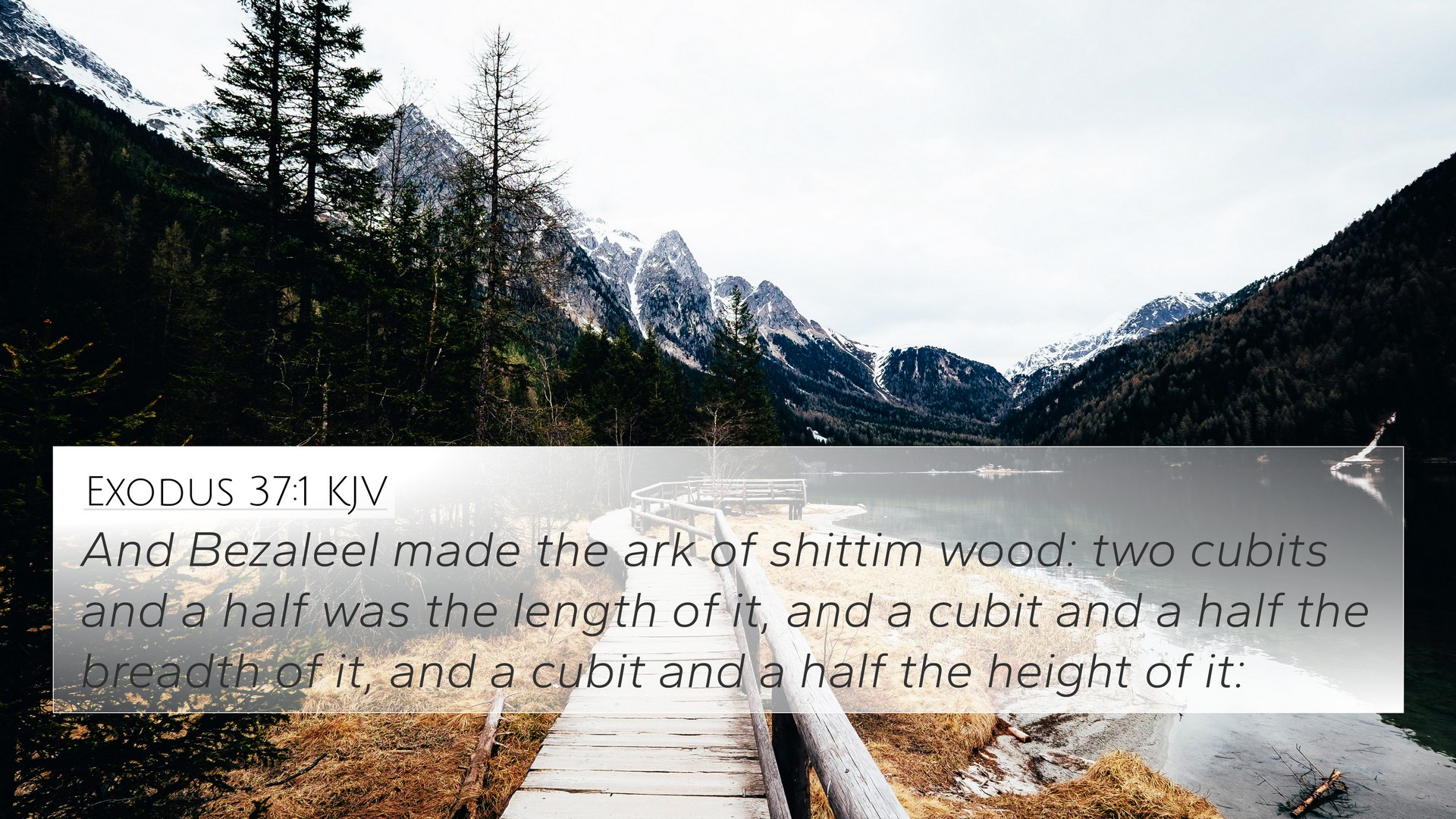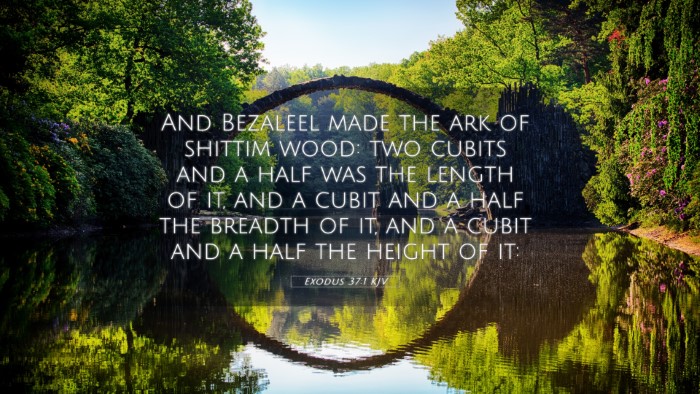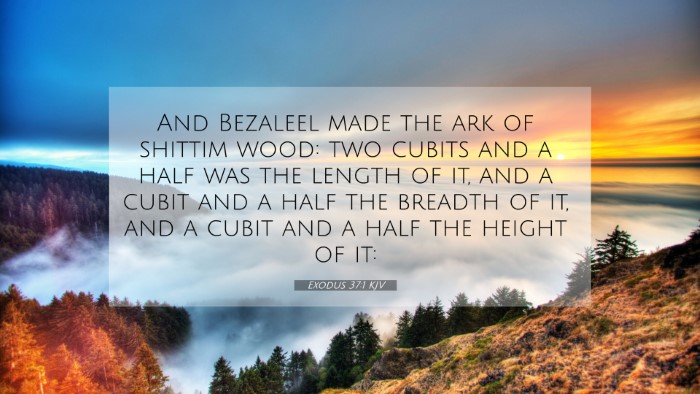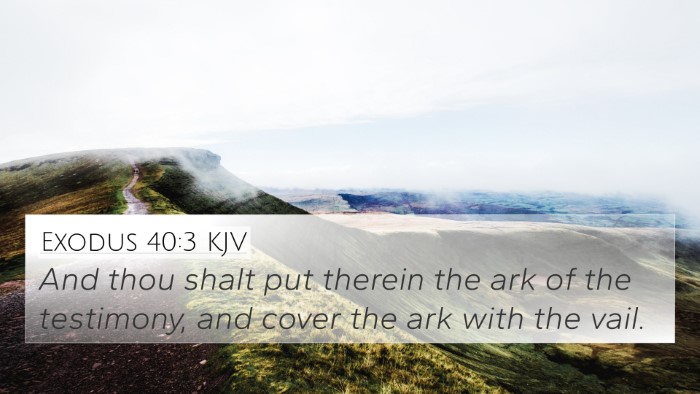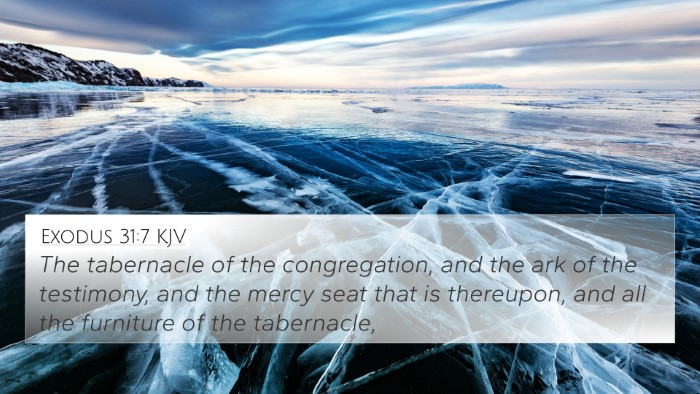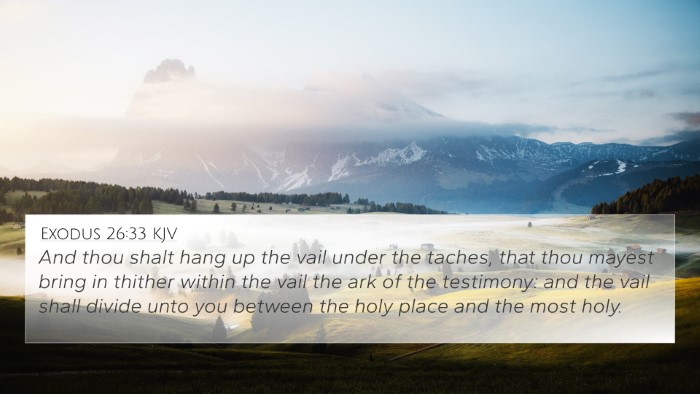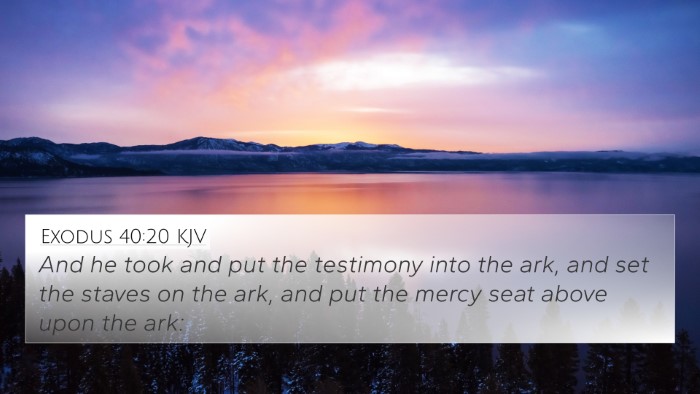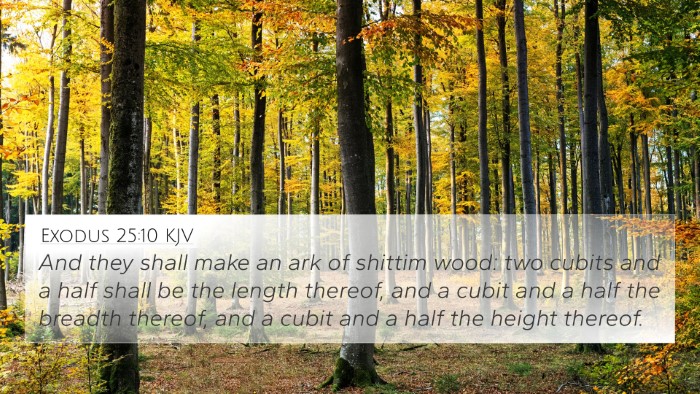Meaning and Interpretation of Exodus 37:1
Exodus 37:1 states, "And Bezalel made the ark of acacia wood; two cubits and a half was the length of it, and a cubit and a half the breadth of it, and a cubit and a half the height of it." This verse describes the construction of the Ark of the Covenant, designed by Bezalel, a skilled artisan.
Contextual Summary
The Ark of the Covenant was a sacred container that held the stone tablets of the Ten Commandments, symbolizing God's covenant with Israel. Understanding the significance of this verse relies on both the literary and theological contexts, ranging from God's instructions for constructing the Tabernacle to the roles of key figures like Bezalel.
Theological Significance
Matthew Henry highlights the importance of divine inspiration in Bezalel's craftsmanship. God endowed Bezalel with wisdom, understanding, and knowledge, showing that all talents and skills ultimately originate from Him. This underscores the belief that God chose specific individuals for sacred tasks, affirming His sovereign plan.
Albert Barnes emphasizes that the Ark represents the presence of God among His people, serving not only as a physical object but as a profound reminder of God's covenant and His continuous guidance and protection. The mention of materials—acacia wood—also conveys durability and resilience, attributes of God’s promise.
Adam Clarke notes that the precise measurements are indicative of God’s desire for order and beauty within divine guidelines. The details reveal a sense of intentionality in worship and relationship. The Ark's dimensions further symbolize completeness, reflecting the nature of God as perfect and holy.
Cross-References
To deepen our understanding, we can observe related Bible verses that enhance the themes present in Exodus 37:1:
- Hebrews 9:4: Discusses the contents of the Ark, establishing its significance in the New Covenant context.
- 1 Kings 6:19: Describes the inner sanctuary built for the Ark, solidifying its importance in worship.
- Exodus 25:10-22: Gives the detailed instructions for the Ark's construction, showing the connection between God’s directives and human response.
- Revelation 11:19: Mentions the Ark in the context of heavenly worship, linking it to God’s eternal covenant.
- Romans 9:4: Highlights the adoption and promises related to Israel, expanding on the Ark and its significance historically and spiritually.
- Isaiah 37:16: Reflects on God seated above the cherubim, echoing the imagery associated with the Ark.
- Psalm 80:1: Invokes the Shepherd of Israel who dwells between the cherubim, paralleling the themes of divine presence.
Practical Application
In examining Exodus 37:1, we recognize the role of dedicated service and skilled craftsmanship in worship. Just as Bezalel was appointed to a significant task, believers today are called to use their unique gifts for God's glory. This verse invites us to consider how we steward our abilities and respond to God's calling in our lives.
Furthermore, the importance of God's presence remains relevant today. The study of the Ark directs us to the deeper truth of God's desire to dwell among His people, culminating in the fulfillment of this through Jesus Christ and His Spirit in the lives of believers.
Exploring the Theme Further
To truly grasp the implications of Exodus 37:1, one can utilize various Bible reference resources, including:
- Bible Concordance: A tool for locating specific verses or topics related to the Ark and its significance.
- Bible Cross-Reference Guide: Assists in finding parallels between verses that share thematic or narrative ties.
- Cross-Referencing Bible Study Methods: Techniques to link verses thematically to deepen understanding.
Conclusion
Through a comprehensive analysis of Exodus 37:1, we can appreciate the multifaceted dimensions of this scripture. It not only serves as a historical account but illustrates God's continual relationship with His people. The connections made through cross-referencing enhance the richness of scripture, allowing believers to explore the Scriptures holistically, thereby nurturing a deeper understanding of God's relentless love and purpose.
